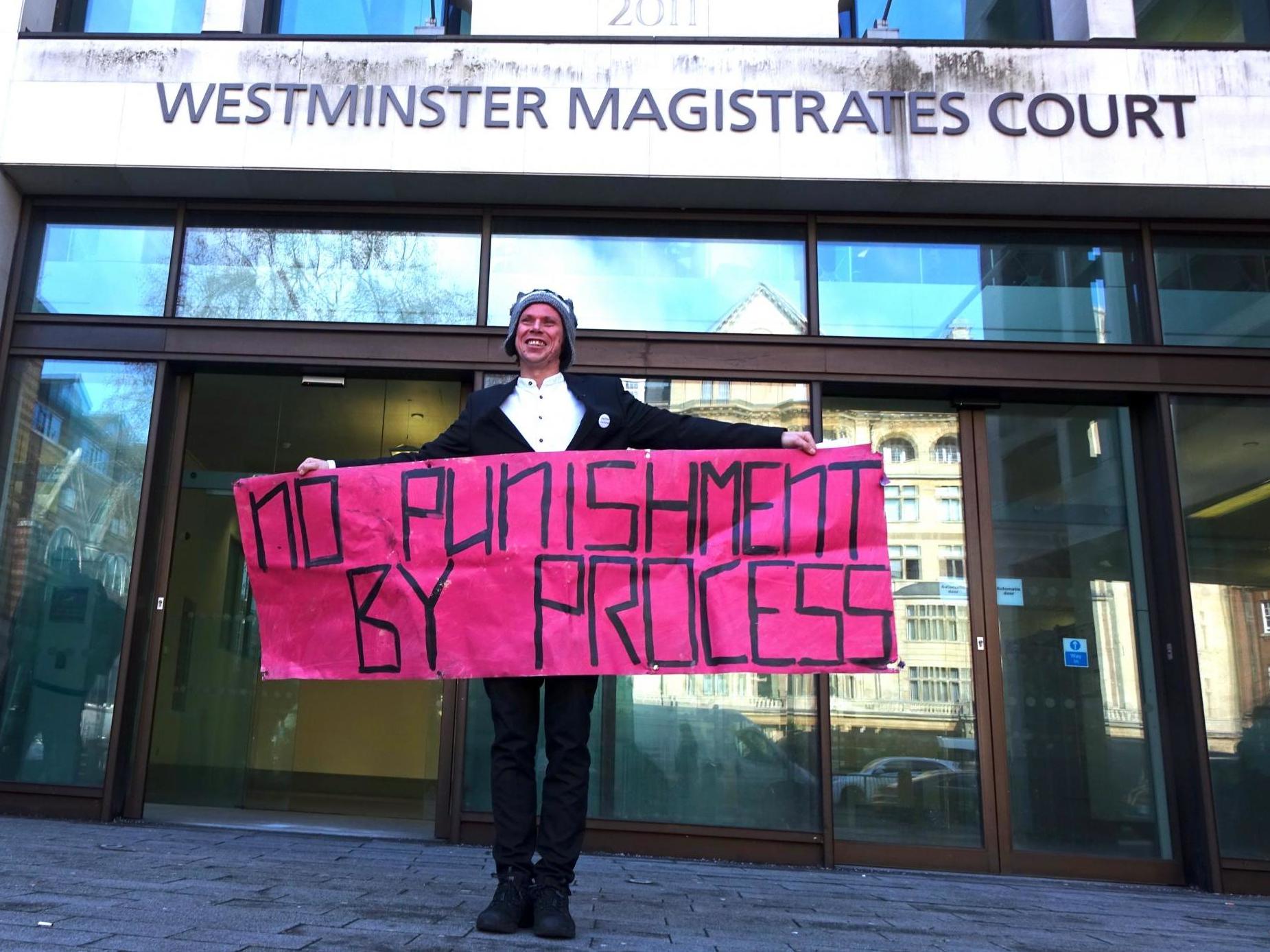Lauri Love will not get computer equipment back from NCA, judge rules
Alleged cyber-hacker is undecided about appealing decision

Alleged cyber-hacker Lauri Love has lost an appeal to reclaim his computers from the National Crime Agency (NCA).
A district judge at Westminster Magistrates Court ruled on Tuesday it was not in the public interest for the computer scientist to have his equipment returned.
Mr Love, who represented himself, used the Police Property Act 1897 to launch legal action against the NCA to reclaim his computers.
In a court document cleared for reporting, Judge Coleman said: "Although the hardware is the property of the applicant it is of little financial value and what is of real significance is the data that is stored within each device.
“I can see no legitimate purpose for the applicant being in possession of this data and it would clearly not be in the public interest for him to have any of it.”
Lauri Love and the NCA
Show all 8Judge Coleman said she could not authorise the return of Mr Love’s equipment while there was an undergoing criminal investigation against him for allegedly hacking into US government websites.
In written submissions at last Monday’s hearing, the 34 year old, who has Asperger’s, said there was no reason for the NCA to keep his equipment as it would “undoubtedly have made multiple forensic copies” which it can use for investigative purposes.
But Judge Coleman said on Tuesday that she accepted “the assertion by the officers of the NCA that copies or images would not suffice for the purposes of a trial".
NCA representative Andrew Bird told the judge Mr Love’s case had cost taxpayers money and that he should pay the costs.
But Judge Coleman ruled: "It is irritating to say the least that the taxpayer has had to bear the cost of the proceedings. But I'm not going to make an order."
The ruling took place one year after Mr Love won a landmark case against extradition to the United States to face charges related to #OpLastResort, the series of online protests that followed the death of US computer scientist Aaron Swartz in January 2013.
In September 2016, judges ruled Mr Love could be extradited to the US, where he could have faced a sentence of up to 99 years, if found guilty.
But the ruling was overturned in February 2018 when the High Court ruled that “Mr Love’s extradition would be oppressive by reason of his physical and mental condition".
Blocking the extradition, judges added that it would "not be oppressive to prosecute Mr Love in England for the offences alleged against him. Far from it".
In the year since the ruling, Mr Love, who is half Finnish, said he has not been contacted by the NCA about a trial in the UK. He said this means he is unable to leave the UK to visit his family abroad.
Mr Love has argued that the use of information security tools such as cryptology “should not be a reason to deprive people of their personal data".
Speaking after the case, he said: “What has gone badly wrong here is that criminal accusations were levied in a civil court while I was unrepresented, without me having access to the evidence that was proffered.
“If the NCA brings a case to the CPS then a charge is levied, then we get an even playing field because then I’d be allowed access to the evidence they used in these proceedings. Then things may start to get a little better.”
Mr Love added: “My ultimate aim is to be prosecuted. A weird thing to say because I don’t think I committed a crime, but until I am prosecuted, successfully or unsuccessfully, I can’t leave the country because our friends in America might try to kidnap me again.
“Had I been promptly charged and prosecuted in 2013, all of this nonsense would be a distance memory, and like some of my friends, I would be laughing about it and getting on with my life.
“As it has now been five and a half years of very harrowing experiences with the extradition proceedings, I am hoping that within the next year at the latest, this comes to a conclusion and that no further action will be taken for a criminal trial.”
Mr Love said that although Justice Coleman had advised him not to press the matter at the Court of Appeals, he would have to “meditate” on the matter.
Mr Love added: “I remember standing here a few years ago and thinking justice has not been done and it turns out that justice was done in a better court with better judges.
“If I hadn’t appealed the extradition, I’d be dead. But now, if I don’t appeal this case, I can just see that the law has taken a very regressive stance on cryptography and people no longer have property rights if they do not cooperate in decryption.
“This is a terrible state of affairs. Personally for me, it’s better than being kidnapped and locked up and killed. So I don’t know what will happen next. We’ll see.”
Subscribe to Independent Premium to bookmark this article
Want to bookmark your favourite articles and stories to read or reference later? Start your Independent Premium subscription today.
